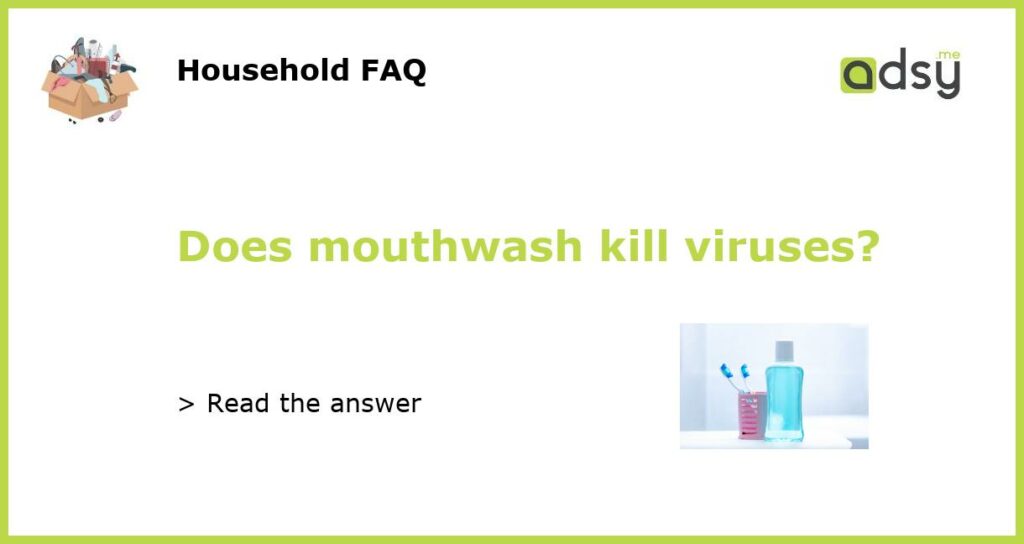What is mouthwash?
Mouthwash is an antiseptic solution that is used to kill bacteria and freshen breath. It can come in different forms such as a liquid that is swished around the mouth or as a spray. Mouthwash can contain different active ingredients that fight against bacteria, including alcohol, chlorhexidine, and hydrogen peroxide. It is an essential part of the daily oral hygiene routine for many people.
How does mouthwash work?
Mouthwash works by killing bacteria in the mouth. Bacteria can build up in the mouth and cause bad breath as well as dental problems like cavities and gum disease. The active ingredients in mouthwash target and kill the bacteria that can lead to these issues. Mouthwash can also help to remove any debris that brushing and flossing may have missed, leaving the mouth feeling fresh and clean.
Can mouthwash kill viruses?
While mouthwash is effective at killing bacteria, it may not be as effective at killing viruses, including the coronavirus. The Centers for Disease Control and Prevention (CDC) states that there is currently no evidence to support the use of mouthwash as a treatment for COVID-19. However, some studies have shown that mouthwash containing certain active ingredients, like hydrogen peroxide, can be effective at reducing viral loads in the mouth for a short period of time.
Is mouthwash still beneficial?
Even if mouthwash doesn’t kill viruses, it can still be beneficial for oral health. By killing bacteria in the mouth, mouthwash can help to prevent tooth decay and gum disease, which are caused by bacteria. Additionally, using mouthwash can help to freshen breath and leave the mouth feeling clean. However, it is important to use mouthwash as directed and not to rely on it as a substitute for proper dental care.
Mouthwash is a beneficial part of a daily oral hygiene routine and can help to kill bacteria in the mouth. While it may not be as effective at killing viruses, it is still an important part of maintaining good oral health. In addition to using mouthwash, it is important to practice good dental hygiene habits like brushing twice a day, flossing regularly, and visiting the dentist for regular check-ups.






